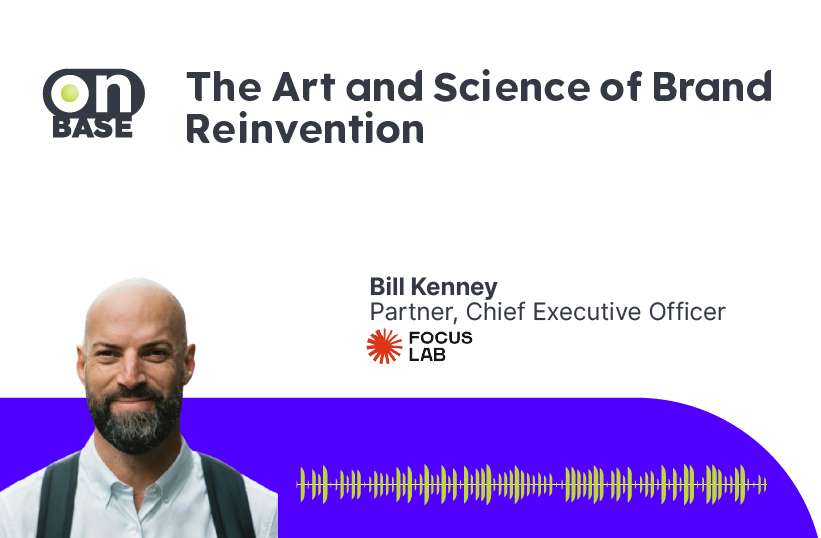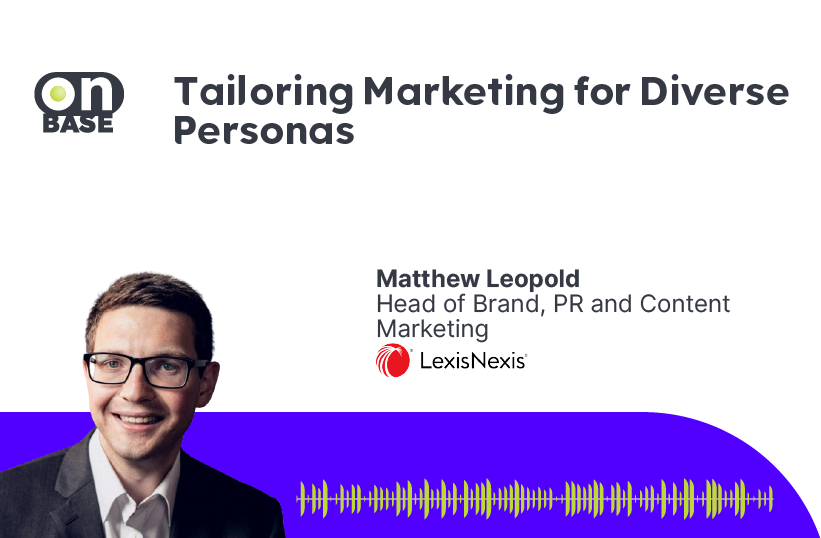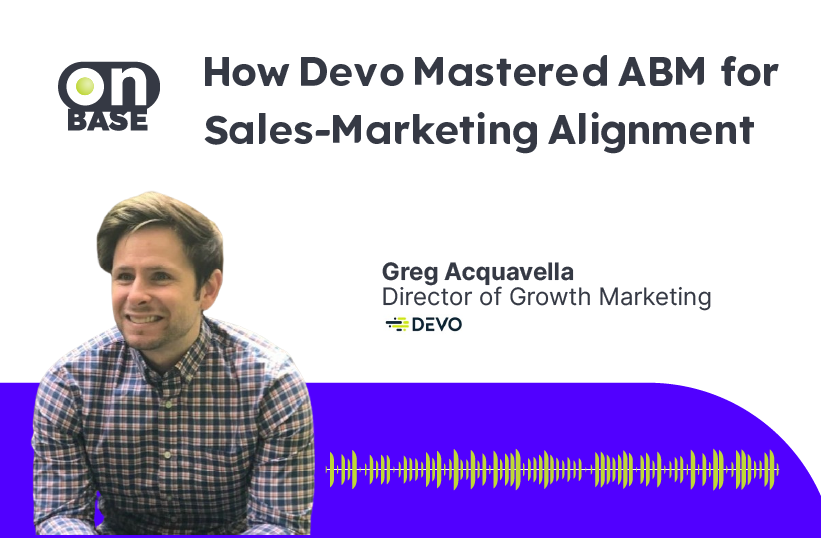
B2B Market Automation
Shownotes
In this episode, Michelle talks about Digitally driving B2B Sales Performance. She divulges her learnings in 2020 and the expectations of B2B buyers. Michelle also shares how the digital transformation impacted B2B market and delivered more ROI. In the end, she gives some great advice to B2B marketers.
About the Guest
Michelle is the Managing Director of Technology B2B at Google. During her 15 year tenure, she has also worked across the retail and education industries. She’s passionate about helping her B2B clients digitally accelerate and transform their marketing. Michelle was also a founding Director of Brand Activation at Google focused on using Google’s data, insights, creativity and technology to build digital business for the world’s biggest brand advertisers.
Key takeaways
- We’ve seen the 10 years of digital transformation in the course of 10 months.
- Customers expect to be nurtured digitally. And the old model of throwing a lead form and then throwing it over the fence, and using your sales team to educate the consumer doesn’t work anymore.
- Buyers are using digital ad sources more than ever before to inform their purchase decisions.
- 74% said that virtual events delivered as much or more ROI than in-person events.
- 71% of B2B buyers prefer to research digitally rather than reach out to a sales rep for most information gathering, and the preference for digital interactions has only increased during the pandemic.
Quotes
“B2B buyers are bringing the same expectations from their B2C experiences and they are people and they want to be talked to like people.”
Highlights from the episode
Tell us a little bit about why you chose the topic – digitally driving B2B sales performance.
It’s really timely especially because of COVID. We’ve seen the 10 years of digital transformation in the course of 10 months. A couple of years ago, I would have conversations with b2b marketers, where they would turn off their marketing campaigns at 5 pm and during the weekends. But due to COVID, work and personal life collided very quickly in 2020.
COVID created a catalyst for change in B2B with the overnight shift to digital-only interactions and we saw an acceleration of the “consumerization of B2B”.
What have you learned in 2020 that you’re taking with you?
Today, B2B buyers are bringing the same expectations from their B2C experiences, with implications for B2B sales & marketing teams on how you treat customers through the purchase journey. And this is much more intensified because of COVID. B2B buyers are people and they want to be talked to like people.
Customers expect to be nurtured digitally. And the old model of throwing a lead form and then throwing it over the fence, and using your sales team to educate the consumer doesn’t work anymore.
What are you hearing from CMOs? What are their top concerns?
- International expansion
- Automation and efficiency
- Profitable growth
What advice are you giving B2B marketers right now, going into 2021?
Show up early – Most B2B buyers start their research with at least one brand in mind so if your brand is not on that list, you’re unlikely to be considered. It’s competitive.
Buyers are using digital ad sources more than ever before to inform their purchase decisions. In fact, nearly 2 in 3 B2B buyers increased their use of upper funnel media such as online video ads to research purchases in 2020. And more and more B2B marketers are focused on building early awareness, with 42% saying that increasing awareness is now a key business priority.
Reimagine customer engagement – In our B2B COVID study, we asked buyers about the importance of a variety of factors on their decision to purchase. Consistently, we found digitally centric experiences rose to the top, including user-friendly websites and apps, the ability to self-serve and complete purchases on their own, and digital communication options like chat. The pivot to virtual events is such a good example of this. How many of us thought that going from in-person trade shows with all the bells and whistles, to a virtual event in your prospects living room would be a bust? But it wasn’t.
78% of B2B marketers surveyed, reported that virtual events were as effective or more effective than in-person events at engaging with a higher number of potential prospects. And 74% said that virtual events delivered as much or more ROI than in-person events.
While B2B brands are getting better in these areas, many buyers (about 1 in 3) still reported that these experiences are delivering below expectations. So now is the time to obsess over your buyers’ satisfaction.
Culture of Marketing As Sales – I run a sales team too and I know how hard it is in a virtual world to run a sales team consistently and universally. But marketing can take some of the pressure off your sales team and ask your sales team to do less of the heavy-lift nurturing and qualifying leads.
Marketing can identify where you need to go deeper throughout the buyer journey, and fully drive outbound lead nurturing until prospects are ready to engage with sales. And by automating parts of the sales cycles such as verification of leads, leads scoring, etc you can redeploy sales strategically to focus on the most complex sales challenges. And support customers and buyers on their terms.
Also, 71% of B2B buyers prefer to research digitally rather than reach out to a sales rep for most information gathering, and the preference for digital interactions has only increased during the pandemic. To pull this off, your sales/marketing infrastructure and measurement need to be connected. Sales and marketing KPIs also need to be better aligned in order to deliver a customer-centric experience throughout the journey.
Shout-outs
- Wendy Bergh – VP Digital ServiceNow
- Seth Berman – Sr. Director Performance Marketing Adobe
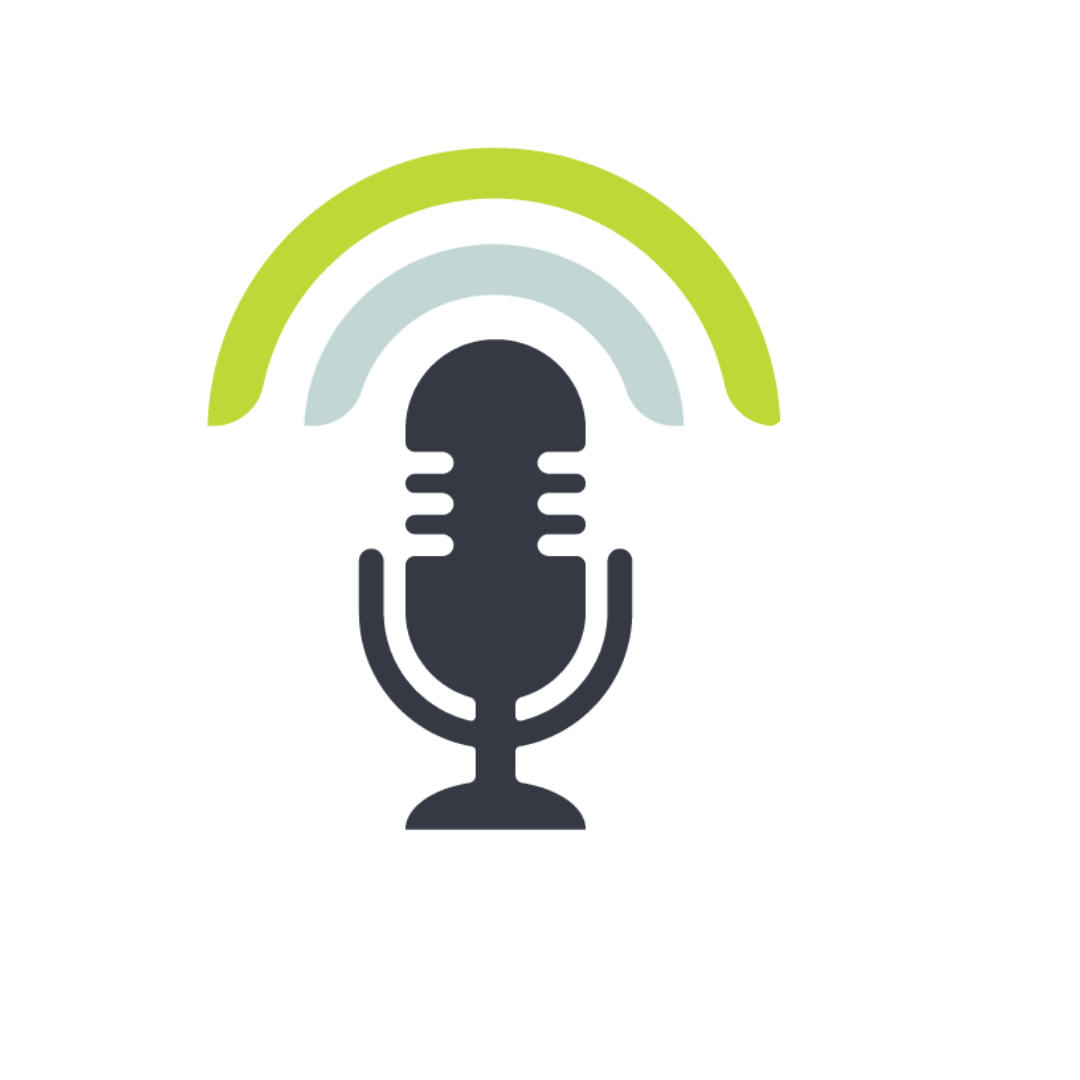
Sunny Side Up
B2B podcast for, Smarter GTM™
